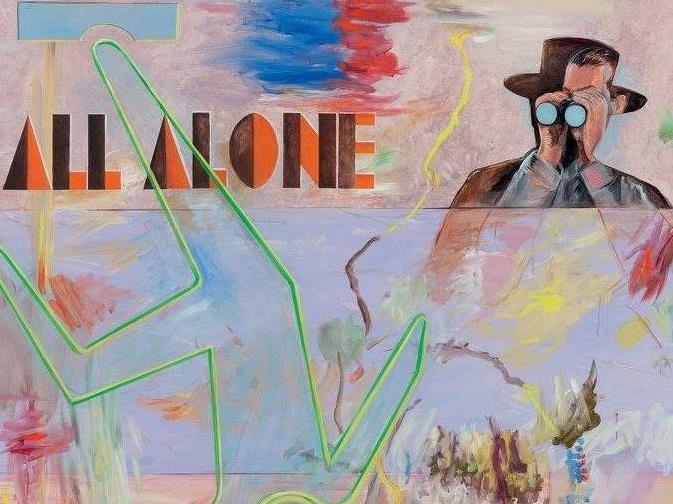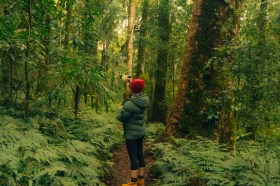Detail of cover.
What is a novella? Hovering between short story and novel, it can come across as indecisive, incomplete, even insecure. The blurbs and introductions in the latest edition of the Griffith Review – Tall Tales Short: The Novella Project III – focus almost entirely on extolling the virtues of the form. ‘Short enough to consume like a single satisfying meal, long enough to linger over with coffee’, declares selection panellist Cate Kennedy, while David Mitchell extolled the forms virtues as ‘short enough to be a getaway car from the cops of boredom.’ I believed the hype; I was excited for the novella experience.
The first novella of the collection is Nick Earls’ Cargoes. There’s a familiarity to his characters – the aging music journalist settling into family life; the young black celebrity with a troubled past – but Earls puts them in interesting situations, and has a good eye for the intricacies of their interactions. Earls’ content seems to perfectly fit the novella container; he gives us three distinct locations and moments, crafting an in-depth study of each.
Next is Madeleine Watt’s Afraid of Waking It. The greatest strength of this work is its sense of place. Urban fuses and blurs into suburban here, and the texture of the place changes with the seasons until it turns claustrophobic and isolating. Dropped into this setting is a problematic tale of an all-too-familiar older male artist taking our young narrator, a shy and retiring high-schooler, as his muse. The troubling, exploitative nature of their relationship is haunting, but still disturbingly glamorised.
Will Martin by Catherine McKinnon is a story of early colonial Australia, following the ship’s boy accompanying Bass and Flinders on an exploratory voyage. It is the longest novella in the collection, and seems the most apt to stand alone as its own, separately published book. Fans of historical fiction will enjoy the detail of the world-building, but for me, all of the sailing business became repetitive, and I longed for more of the unexpected insights from the lower class narrator.
If Will Martin feels most capable of standing alone, Tony Davis’s The Flight seems the most like it hasn’t broken through the short story barrier. Following a whistle-blower on two international flights to escape various retributions, the piece is neatly self-contained, but seems padded out to fit the novella length. Its bumbling and nervous whistleblowing fugitive’s inner monologue bounces blandly between generalised panic, non-specific truisms about his own ethical superiority, and disappointingly cliché and repetitive reminiscences of the lover that awaits him.
Unlike many of the other characters we have met, the hulking and deformed Luke of Helen Gildfind’s Quarry is acutely aware of each and every one of his flaws. Being invited inside the mind of this world-weary, savagely damaged man is at once swelteringly uncomfortable and yet somehow warm and tender. The poetry of Gildfind’s language is well measured to align us with the rhythms of Luke’s repetitive life and thought cycles, and repeated phrases gain weight and power as the story goes on. Quarry is a searing portrait of difficult encounters between masculinity, isolation and vulnerability, both within our main character and in his interactions with the world around him.
The editorial note of this collection suggests that these five novellas provide a wide cross-section of the ‘power and versatility’ of the form. I’d have to disagree. Theme, content and form are all similar – even repetitive – across the collection. I know the call-out has begun for the fourth edition of the ongoing Novella Project by Griffith. I hope that the selection panel for this next edition might keep a more open mind to pieces that test or play with the form, and pieces that commit to exploring unique, unheard voices and perspectives.
Rating: 3 out of 5 stars
Griffith Review 50 – Tall Tales Short: The Novella Project III
Authors: Nick Earls, Helen Gildfind, Catherine McKinnon, Madeleine Watts, Tony Davis
Art: Jacqui Stockdale
Editors: Julianne Schultz and Aviva Tuffield
Paperback, RRP $27.95





